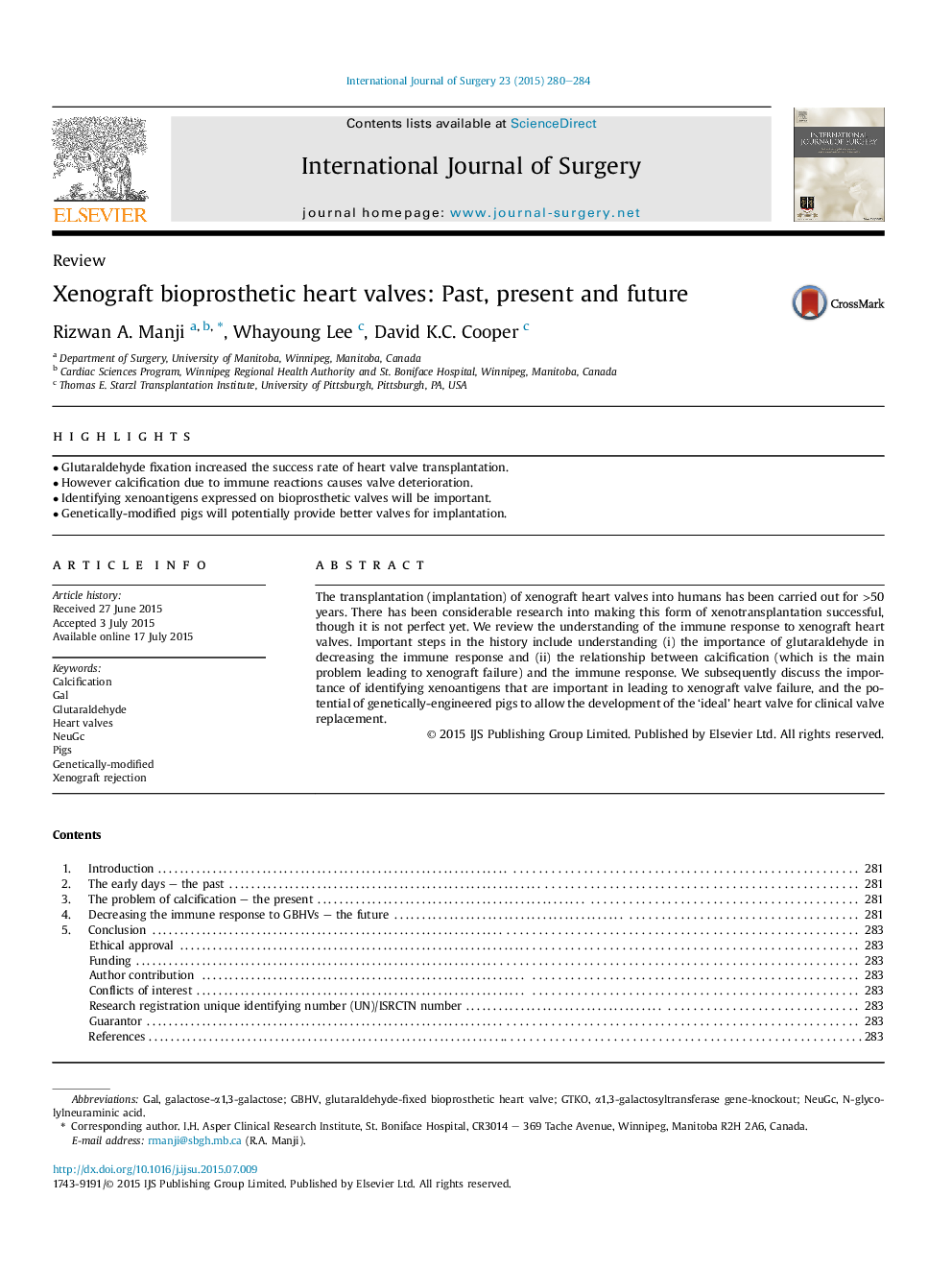| Article ID | Journal | Published Year | Pages | File Type |
|---|---|---|---|---|
| 4285726 | International Journal of Surgery | 2015 | 5 Pages |
•Glutaraldehyde fixation increased the success rate of heart valve transplantation.•However calcification due to immune reactions causes valve deterioration.•Identifying xenoantigens expressed on bioprosthetic valves will be important.•Genetically-modified pigs will potentially provide better valves for implantation.
The transplantation (implantation) of xenograft heart valves into humans has been carried out for >50 years. There has been considerable research into making this form of xenotransplantation successful, though it is not perfect yet. We review the understanding of the immune response to xenograft heart valves. Important steps in the history include understanding (i) the importance of glutaraldehyde in decreasing the immune response and (ii) the relationship between calcification (which is the main problem leading to xenograft failure) and the immune response. We subsequently discuss the importance of identifying xenoantigens that are important in leading to xenograft valve failure, and the potential of genetically-engineered pigs to allow the development of the ‘ideal’ heart valve for clinical valve replacement.
